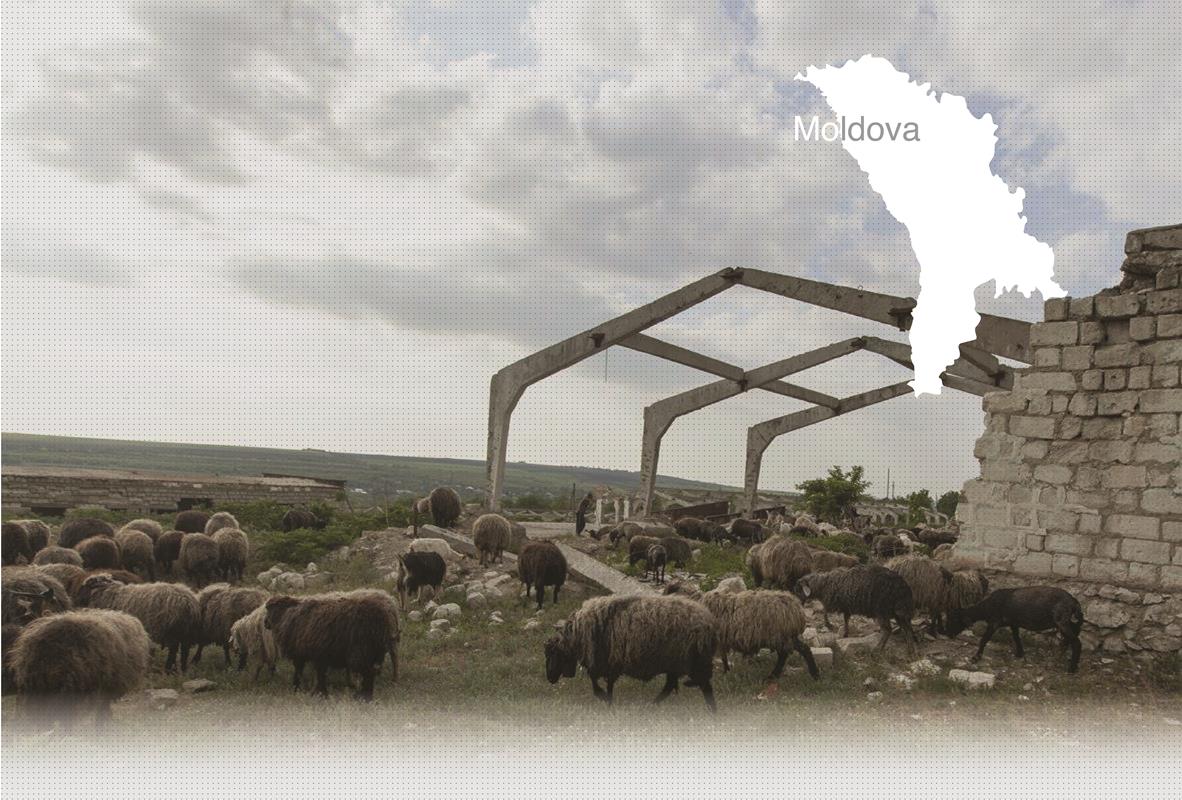

2 Execution site(s)
Nina J., born in 1930: “Zgurița was almost completely a Jewish village before the war although there were still some Moldovans and Ukrainians living here too. The Jews of the village were traders, artisans, some were farmers. But they usually did not work the land themselves; they employed Moldovans or Ukrainians to do it. My father would rent an orchard from a Jewish man in which he would work the whole season. He would pay the rent for the orchard, but the fruits belonged to us. I remember a lot of names of my Jewish schoolmates or neighbors, especially local pharmacists Mr. and Mrs. Gruw, and my neighbor Roza and her husband who were killed by the Romanians during the war.” (Witness N°113, interviewed in Zgurița, on May 21, 2013)
Zgurița is a village in Drochia District, in the north of Moldova. Before the war, the village of Zgurița consisted of three villages: Zgurița, Zgora and Niculesti. More than 1,800 Jews lived in Zgurița in 1897 (about 85% of a total population) which was founded as a Jewish agricultural colony in 1853. The Ukrainians lived mainly in Zgora and the Moldovans in Niculesti. In 1930, the Jewish community of Zgurița numbered 3,028 people. They were mainly craftsmen, tradesmen, and farmers. In Zgurița, before the outbreak of WWII, there was a synagogue, a kindergarten and a elementary Jewish school. Nina J., born in 1930, remembers her Jewish schoolmates and neighbors: Izka, Olko Gueman, Lejba, Surka, Gagamander, Olko Baulimer and Mr. and Mrs. Grul who were local pharmacists. According to her testimony, relations between Jewish and non-Jewish inhabitants of the village were pretty good. There were several mixed marriages before the war.
The Romanian troops arrived in Zgurița on July 3, 1941. They set the Jewish neighborhood on fire and started to assemble all the Jews in a local vegetable garden. Nina J., born in 1930 remembers that many of the Jews who tried to hide and avoid the gathering were shot in their homes. She remembers a couple of local pharmacists, Mr. and Mrs. Gruw being shot and buried in the building of their pharmacy. The same happened with Mrs. Roza and her husband, the owners of the orchard, where the Jews from the village were gathered: they were both shot and buried there. Both graves have no memorial. Nina did not witness the rest of that Aktion because she fled with her family to Makarovka, a nearby village, but she remembered that Romanian soldiers killed Jewish children by throwing them alive in local wells. She also recalled that the Jews, once gathered in the vegetable garden, were brought in column out of Zgurița. Indeed, according to available sources, after two days spent under guard by Romanian soldiers, the Jews were sent to Transnistria and then back to Bessarabia. When the column arrived near the village of Cosăuți in Soroca District, young Jews were ordered to dig mass graves and shot. Remaining Jews were deported back to Transnistria in the fall of 1941 where they were shot or died due to harsh forced labor, brutal treatment, and dreadful living conditions. Homes and properties of the Jews of Zgurița were looted by inhabitants of nearby villages.
Do you have additional information regarding a village that you would like to share with Yahad ?
Please contact us at contact@yahadinunum.org
or by calling Yahad – In Unum at +33 (0) 1 53 20 13 17